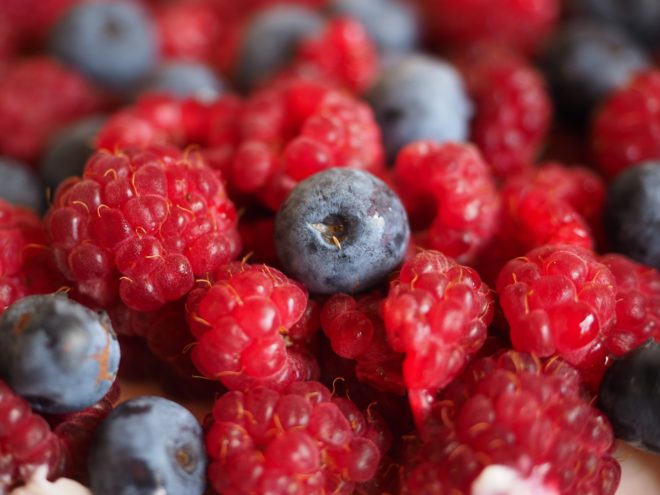Use Food As Medicine
According to Anand P. et al. (2008) ‘Only 5–10% of all cancer cases can be attributed to genetic defects, whereas the remaining 90–95% have their roots in the environment and lifestyle.’
Nutrition plays an important part not only in the prevention of cancer, but also in its treatment. Inadequate or poor nutrition provides a favourable environment for cancer to grow and develop.
By consuming nutrient dense foods and changing the body’s environment, you deprive cancer of the nutrients it strives on. Thus, good nutrition supports the immune system, starves cancer cells and provides micro and macronutrients.
Nutrition and physical activity are the two most important aspects that can be modified to prevent cancers occurrence.
A healthy diet does not guarantee a life free from cancer. Other risk factors such as genetics, spirituality, and lifestyle are involved in cancer development. The following recommendations can help reduce the risk.
Eat a well-balanced diet. (Memorial Sloan-Kettering Cancer Center, 2010) Whenever possible select food that is locally grown free of hormones, pesticides, herbicides and antibiotic residues.
Eating food grown without pesticides may protect against unhealthy cell changes associated with pesticide use in animal studies. When selecting food, select quality, balance, moderation and variation.
Select the food of highest quality, all natural, biologically grown, fresh, unprocessed, non-irradiated, and without synthetic chemicals. It is also beneficial to avoid frying, broiling, and microwave use.
Consider The Following Dietary Suggestions
Add healthy choices to your diet.
Eat foods rich in antioxidants such as berries. Blueberries are packed with anthocyanins, which reduce inflammation and are one of the most powerful antioxidants. Strawberries are rich in antioxidants such as vitamin C and ellagic acid.
Other types of berries, all rich in flavonoids, are raspberries, blackberries, and cranberries. (AICR), 2015)
Eat cruciferous vegetables that are powerful protective foods containing Indole-3-carbinol (an indole) and sulforaphane (an isothiocyanate) that have been researched for anticancer effects (Hayes JD et. al. 2008).
They are also rich in nutrients, including several carotenoids (lutein, beta carotene and zeaxanthin); vitamins C, E, and K; folate; and minerals.
Include the following cruciferous vegetables: ‘Bok choy, Broccoli, Brussels sprouts, Cabbage, Cauliflower, Collard greens, Horseradish, Kale, Radishes, Turnips, Watercress, and Wasabi’ (National Cancer Institute 2012).
Eat beta-carotene containing foods, they are an immune system booster and protect cell membranes from toxin damage.
Include green leafy vegetables such as spinach, Swiss chard, apricots, beet greens, Kale, Mustard Greens, Collard Greens, Turnip Greens, Swiss Chard, papaya and Pak Choi (Memorial Sloan-Kettering Cancer Center, 2015).
Lower the intake of saturated fats (ACNT, 2010).
Eat lots of vegetables, and fresh fruit (Mayo Clinic, 2010) more than 5 cups a day. They contain Vitamin C, to support immunity, and provide antioxidant activity. (Bone, K, 2010) Eat whole fruit rather than drinking fruit juice. Whole fruit reduces calories, adds fiber, and increases feelings of fullness.
Include vegetable juices for its nutrients and antioxidant activity (Bone, K. 2010).
Include whole grains, and legumes (ACNT, 2010).
Add garlic, onions, and mushrooms (ACNT, 2010). In the International Journal of Cancer 2006, the study by Gonzalez CA, et. al. they investigated the effects of nutrition on cancer. In the study, higher intakes of onion and garlic were associated with a reduced risk of intestinal cancer.
The Cancer Council (2010) recommends increase the intake of protective Omega-3 fats found in oily fish like Atlantic salmon, swordfish, sardines mackerel, and canned fish such as sardines, salmon and tuna also including flaxseed oil, sesame and pumpkin seeds.
Eat dietary fibre it is important for a healthy digestive system and overall health (The Cancer Council, 2010).
Drink clean pure water or unsweetened beverages (Memorial Sloan-Kettering Cancer Center, 2010).
Eat Shitake and Ganoderma mushrooms (Bone, K. 2010).
Include both black and green teas in the diet as they help protect against cancer (University of Maryland, 2010). Green tea it is an antioxidant and may selectively inhibit the growth of cancer (National Cancer Institute 2010).
Eat fish (preferably oily) they contain healthy omega 3 fatty acids at least two times per week such as Salmon, sardines, swordfish, gemfish and Spanish mackerel (Cancer Council, 2015).
Things To Avoid:
Limit sweet foods and drinks as sugar increase the release of insulin and suppress the immune system.
Avoid fried, greasy, creamy or rich or spicy, refined foods. (Memorial Sloan-Kettering Cancer Center, 2010) junk foods (ACNT, 2010).
Avoid Trans fatty acids (Trans fats) that are found in foods that are made with or cooked in partially hydrogenated fat. Hydrogenation is the changing of a liquid vegetable oil into a solid. Some crackers, potato chips, baked goods, deep-fried fast foods and margarines contain trans fats. Swap all Trans fats for healthy fats like olive oil, avocado, raw butter, and coconut oil.
Avoid xenooesterogens (ACNT, 2010).
Avoid processed meats. This includes items such as bacon, ham, salami, sausages, frankfurts. Processed meats are high in salt and fat they also contain additives and preservatives (Cancer Council, 2016) and nitrates.
Limit the consumption of red meats. Eating red meat exposes us to dietary carcinogens such as N-nitroso compounds and heterocyclic amines (WCRF, 2007). Choose leaner cuts of meat and remove visible fat.
Avoid alcohol as this increase the number of free radicals (ACNT, 2010).
Stop smoking. (Memorial Sloan-Kettering Cancer Center, 2010). Cigarettes, according to The Cancer Research United Kingdom (2014), contain many different chemicals that damage cells’ DNA. They further confirm that ‘smoking is by far the biggest preventable cause of cancer.’ Therefore, if you are still smoking, consider stopping for your health and the health of the people around you.
Reduce exposure to environmental carcinogens, toxic substances, and radiation (PSR, 2016).
Life Style
Choose the healthiest lifestyle options possible, to empower yourself and reduce your risks.
Maintain a healthy weight through a combination of a healthy diet and regular exercise (Mayo Clinic, 2010). Consider adding meditation to your routine still the mind and reduce stress (Mayo Clinic, 2010).
Include more physical fun such as dancing, aerobics, swimming, tai chi, walking, and yoga. Give yourself lots of breaks throughout the year so you have fun things to look forward to. Above all enjoy what you do and live life to the fullest.
You can find much more information on living a holistic lifestyle in these free magazines and on our YouTube channel.

Irene Vervliet – Naturopathic Doctor
Reference
American Institute of Cancer Research, (AICR) 2016, accessed 5/2/2016 http://www.aicr.org/foods-that-fight-cancer/foodsthatfightcancer_berries.html
Cancer is a Preventable Disease that Requires Major Lifestyle Changes Pharm Res. 2008 Sep; 25(9): 2097–2116. Anand P, Kunnumakara A.B., Sundaram C., Harikumar K.B., Tharakan S. T.,Lai O.S., Sung B., and Aggarwal B.B. accessed 5/2/2016, http://www.ncbi.nlm.nih.gov/pmc/articles/PMC2515569/
ACNT, 2010, ‘Herbal Advance Treatments Advanced 1 – Life Stages Module notes’, 2010, ACNT
Bone, K, 2010,’Cancer Support, A Comprehensive Review of Natural Options’, Medi Herb In Clinic Seminars.
Cancer council, 2010 ‘Cancer-prevention meat-and-cancer – Statement’ accessed 3/2/2016 at http://www.cancercouncil.com.au/1752/cancer-prevention/diet-exercise/nutrition-diet/other-foods-nutrients/meat-and-cancer-3/#7tGMsL6WkMoquzBZ.99
Cancer council, ‘Omega-3 Fatty Acids, Fish and Cancer Prevention – Position Statement’ accessed 3/2/2016 at http://www.cancercouncil.com.au/682/cancer-prevention/diet-exercise/nutrition-diet/other-foods-nutrients/fish-omega-3-and-cancer/#MeLmBKozwqE0HwDt.99
Cancer council, 2010, ‘Selenium and Cancer’, accessed 25/6/2010 at http://www.cancercouncil.com.au/editorial.asp?pageid=2351
Cancer council, 2010, ‘Soy Foods and Cancer’ accessed 25/6/2010 at http://www.cancercouncil.com.au/editorial.asp?pageid=368
Cancer council, 2010, ‘Fish, Omega-3 Fats and Cancer’ accessed 25/6/2010 at http://www.cancercouncil.com.au/editorial.asp?pageid=266
Cancer council, 2010, ‘Fibre, Wholegrain Cereals and Cancer’ accessed 25/6/2010 at http://www.cancercouncil.com.au/editorial.asp?pageid=363
Cancer council, 2010, ‘Physical Activity and Cancer’ accessed 25/6/2010 at http://www.cancercouncil.com.au/editorial.asp?pageid=930
Cancer Research UK, 2015 Causes of cancer, 201 accessed 11 /2/2016, http://www.cancerresearchuk.org/about-cancer/causes-of-cancer/smoking-and-cancer
Cancer prevention with freeze-dried berries and berry components, 2007, GD Stoner, LS Wang, N Zikri, T Chen, SS Hecht… – Seminars in cancer …, 2007 – Elsevier
Cook, T, 2010, ’Cancer Support, A Comprehensive Review of Natural Options’, MediHerb In Clinic Seminars.
Gonzalez CA, Pera G, Agudo A, et al. Fruit and vegetable intake and the risk of stomach and oesophagus adenocarcinoma in the European Prospective Investigation into Cancer and Nutrition (EPIC-EURGAST). International Journal of Cancer 2006; 118(10): 2559–2566.
Hayes JD, Kelleher MO, Eggleston IM. The cancer chemopreventive actions of phytochemicals derived from glucosinolates. European Journal of Nutrition 2008;47 Suppl 2:73-88.
National Cancer Institute , 2010, ‘Tea and Cancer Prevention: Fact Sheet’ accessed 25/6/2010 at http://www.cancer.gov/cancertopics/factsheet/prevention/tea
Mayo Clinic, 2010, accessed 27/6/2010 at http://www.mayoclinic.com/health/cancer/DS01076/DSECTION=alternative-medicine
Memorial Sloan-Kettering Cancer Center, 2010, ‘Adjuvant Therapy for Breast Cancer’ accessed 25/6/2010 at http://www.mskcc.org/patient_education/_assets/downloads-english/11.pdf, 1275 York Avenue, New York, New York 10065
Memorial Sloan-Kettering Cancer Center, ‘Beta-Carotene’ 2015, accessed 2/2/2016 https://www.mskcc.org/cancer-care/integrative-medicine/herbs/beta-carotene
Memorial Sloan-Kettering Cancer Center, 2010, ‘Smoking Cessation’ accessed 9/9/2010 at http://www.mskcc.org/mskcc/html/2532.cfm
Physicians for Social Responsibility, ‘Cancer and Toxic Chemicals’ accessed 9/2/2016 at http://www.psr.org/environment-and-health/confronting-toxics/cancer-and-toxic-chemicals.html
WCRF/AICR Expert Report, Food, Nutrition, Physical Activity and the Prevention of Cancer: a Global Perspective.: World Cancer Research Fund; 2007.
University of Maryland, 2010, ‘Green Tea’ accessed 25/6/2010 at http://www.umm.edu/altmed/articles/green-tea-000255.htm






